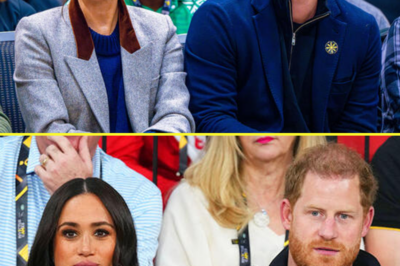The Truth Has Been Revealed: Lia Thomas Banned from the 2025 Olympics, Authorities Order Her to ‘Swim with Men’
In a shocking turn of events, Lia Thomas, the transgender swimmer who made headlines for her groundbreaking participation in women’s collegiate swimming, has been banned from competing in the 2025 Olympics.
The controversial decision, which has already ignited debates about fairness and inclusion in sports, has raised questions about the policies surrounding transgender athletes and their participation in gender-segregated competitions.
Who is Lia Thomas?
Lia Thomas became a household name in 2022 when she became the first openly transgender woman to win an NCAA Division I swimming title.
The moment was historic, marking a significant step forward for transgender athletes. However, her success quickly sparked controversy and fierce debate regarding the inclusion of transgender athletes in women’s sports.
Thomas, who transitioned from male to female, competed in women’s swimming events after meeting the NCAA’s criteria, which included hormone therapy for a set period.

While Thomas’ achievements were celebrated by some for breaking barriers, they were met with criticism from others who argued that her physical advantages as a trans woman, having spent years as a male swimmer, created an unfair competitive edge.
The debate surrounding her participation escalated, with calls for more regulation and clearer guidelines on transgender athletes’ eligibility to compete in gender-segregated sports.
The discussion reached a fever pitch when Thomas participated in the 2022 NCAA Women’s Swimming Championships, where she made history but also faced backlash from opponents who believed her inclusion was unfair to cisgender female athletes.
The Ban from the 2025 Olympics
After years of heated discussion and controversy, the International Olympic Committee (IOC) and other governing bodies in competitive swimming have announced a groundbreaking ruling: Lia Thomas will not be allowed to compete in the 2025 Summer Olympics as a woman.
Instead, she has been ordered to “swim with men,” referring to the male category of swimming events, in accordance with new regulations set forth by the IOC and other international sporting authorities.

This decision stems from recent changes in the eligibility criteria for transgender athletes, particularly focusing on the physiological factors that some claim give trans women an inherent advantage over cisgender women.
The IOC’s updated guidelines require that transgender women must undergo a specific period of hormone therapy, and their testosterone levels must be within a certain range for an extended period before they can compete in women’s events.
However, Thomas’ transition and history of competing as a male swimmer before transitioning led authorities to conclude that she did not meet the current eligibility requirements for women’s events.
This ruling has sent shockwaves through the swimming world and beyond. It marks a pivotal moment in the ongoing debate over how sports organizations are handling the inclusion of transgender athletes in gender-segregated competitions.
The IOC’s New Guidelines and the Controversy
The IOC’s decision to enforce stricter regulations regarding transgender athletes is part of an effort to create a more “level playing field” in sports.
The organization argues that while it is committed to the inclusion of transgender athletes, it is also essential to consider the competitive integrity of women’s sports.
The latest ruling comes after years of deliberation, consultations with scientists, and assessments of the unique physical challenges posed by gender transition.
The IOC’s updated policy requires that transgender women who wish to compete in women’s events must have declared that their testosterone levels have been below a specific threshold for at least one year prior to competition.
Additionally, athletes must prove that they have no “physical advantage” over cisgender women in terms of muscle mass, bone density, and other characteristics typically associated with male athletes.
These new regulations, while designed to ensure fairness, have sparked intense reactions from both sides of the debate. Supporters of the decision argue that it is necessary to preserve the integrity of women’s sports and ensure fair competition.
They contend that even with hormone therapy, transgender women may still retain advantages due to their previous male physiology, which can affect strength, endurance, and performance.
On the other hand, opponents of the ban argue that the decision undermines the progress made in inclusivity and human rights.
Many believe that transgender athletes should not be excluded from women’s competitions if they have undergone the necessary medical transition and meet the health criteria set by governing bodies.
NCAA’s new trans athlete guidelines sow confusion amid Lia …
Critics of the IOC’s decision argue that it is a step backward for transgender rights, reinforcing discrimination against a marginalized community and sending a message of exclusion rather than inclusion.
The Impact on Lia Thomas and Her Future in Swimming
For Lia Thomas, this ban represents a significant setback in her athletic career and personal journey. Having worked tirelessly to transition and compete in women’s swimming, Thomas had hoped that her achievements would be seen as a triumph for transgender inclusion in sports.
Now, with the decision to relegate her to men’s competitions, Thomas must confront the harsh reality of the rules that govern elite-level sports.
Thomas has not yet commented publicly on the IOC’s ruling, but it is clear that this ban is both a personal and professional blow.
Throughout her career, she has faced intense scrutiny, with detractors questioning her legitimacy as a female athlete and supporters championing her right to compete.
Now, with the IOC’s decision, she faces the prospect of competing against men once again, an outcome that many believe might be more challenging for her, given the immense competition in male swimming.
For transgender athletes like Thomas, the ruling raises questions about whether their athletic aspirations will ever be fully realized in a fair and supportive environment.
The ruling forces them to navigate an increasingly complex landscape of regulations, public opinion, and legal constraints, making it harder to feel included and supported in their chosen sport.
Broader Implications for Transgender Athletes in Sports
Lia Thomas’ ban from the 2025 Olympics may serve as a precedent for other sports organizations to tighten their eligibility criteria for transgender athletes.
If this ruling stands, it could prompt more governing bodies across the world to reassess their policies on transgender participation in competitive sports, particularly in events where physical advantages are more pronounced.
The long-term consequences of this decision remain uncertain. While some see it as a necessary move to ensure fairness in women’s sports, others worry it could further marginalize transgender athletes, making it even harder for them to compete at the highest levels.
As the debate continues, it is clear that the inclusion of transgender athletes in sports will remain one of the most polarizing and complex issues in modern athletics.
Conclusion: What Lies Ahead for Lia Thomas and Transgender Athletes?
The IOC’s ban of Lia Thomas from the 2025 Olympics and the subsequent ruling to have her “swim with men” reflects the ongoing tension between fairness, inclusion, and the integrity of competitive sports.
While the decision seeks to establish more clarity and consistency in the eligibility of transgender athletes, it is not without its controversies.
For Lia Thomas, this decision is a significant turning point, raising questions about her future in competitive swimming and the broader impact on transgender athletes.
Whether this ruling is a step toward greater fairness in women’s sports or a setback for the transgender community in athletics, only time will tell.
As the world of sports continues to evolve, one thing remains certain: the conversation about gender, fairness, and inclusion in athletics is far from over.
News
Carrie Underwood steps out with husband Mike Fisher in rare red carpet appearance — Fans are buzzing
Last night, Underwood and her husband, Mike Fisher, made headlines by walking the red carpet together for the first time…
Trump or Biden? Astronaut Butch Wilmore reveals who truly saved him after 9 Months in Space
NASA astronaut Barry “Butch” Wilmore recently shared what truly saved him during a challenging nine-month mission aboard the International Space…
Inside Fox News’ Peter Doocy’s and Hillary Vaughn small wedding that had only 18 people
Fox News personalities Hillary Vaughn, 32, and Peter Doocy, 35, welcomed their daughter, Bridget Blake Doocy, into the world on…
Fox News’ Kat Timpf Reveals Update After Undergoing Surgery for Cancer
Fox News contributor Kat Timpf is sharing a health update after undergoing a double mastectomy following her cancer diagnosis ….
Social Media Reacts To Viral Clip Of Meghan Markle Giving Prince Harry A ‘Hateful’ Look Before Getting Back Into Character: ‘The Mask Slipped’
Rumors about the intricacies of Meghan Markle and Prince Harry’s relationships have been swirling for years, with many social media…
Kim Kardashian ‘stopped North visiting dad Kanye West after finding out Andrew and Tristan Tate would be there’
KIM Kardashian has “stopped daughter North visiting dad Kanye West after finding out Andrew and Tristan Tate would be there”,…
End of content
No more pages to load












